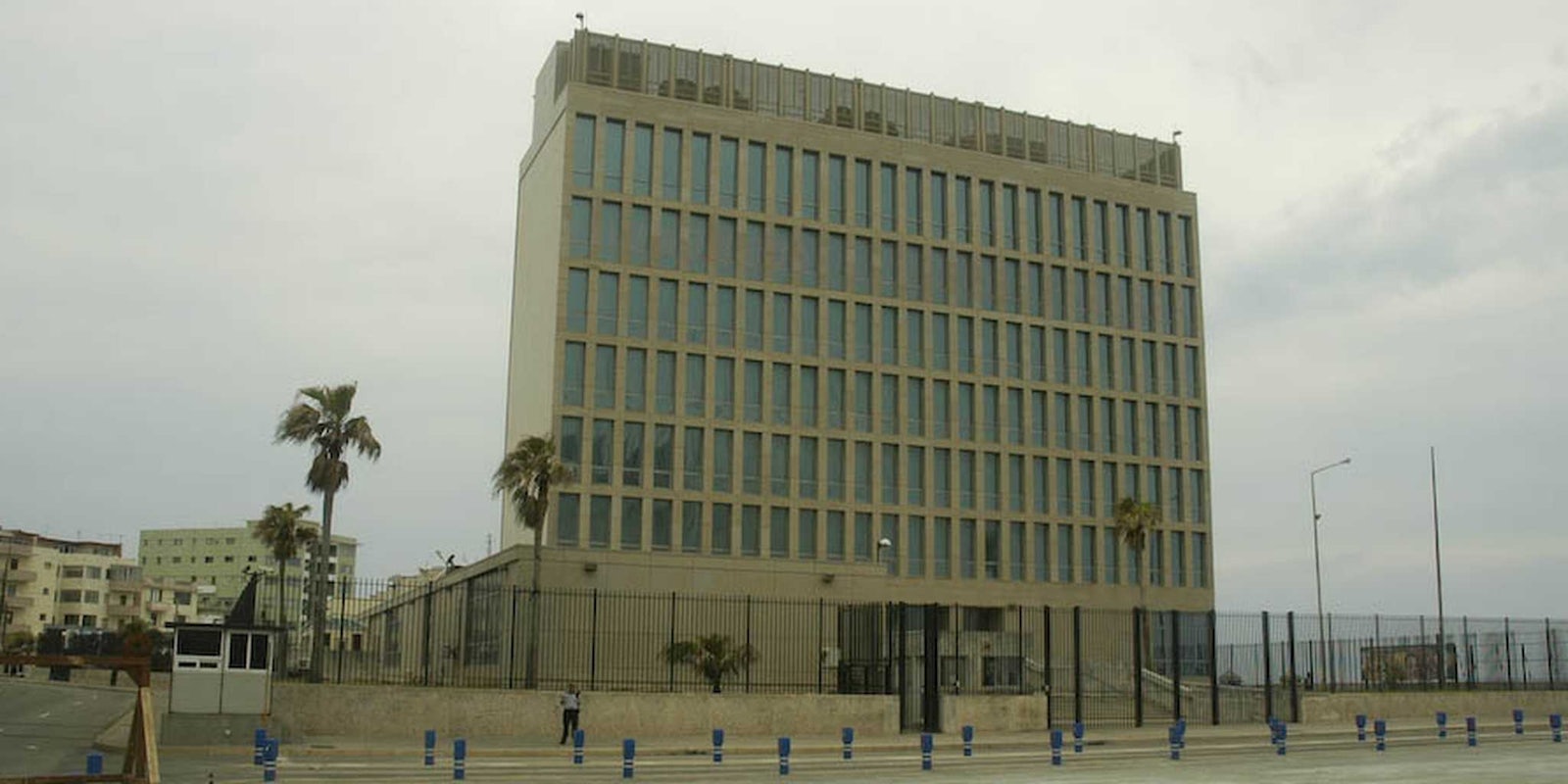Internet connections in Cuba are few and expensive, but some residents have found a way to get online for free—with the help of the United States government.
Cubans are reportedly heading to the U.S. Interests Section, the American diplomatic mission until full relations are restored, to connect to the Internet. They do so risking the displeasure of their own government, which still considers the compound with its innocuous little Internet trailer, a hotbed of spies and sedition.
Despite having finally connected the island to the global Internet via a submarine cable from Venezuela, connectivity in Cuba is at a minimum. One of the least wired countries on Earth, only a minuscule percentage of Cubans can go online.
Most of those who do must pay for Wi-Fi cards from Cuba’s national telecom, ETECSA, which cost $4.50 per hour, or they can log on at one of the country’s rare but increasingly popular Internet cafes for $5 per half hour. Those with more money can slink into a tourist hotel and pay up to $15 per hour.
Although the Cuban government has permitted the first free public Wi-Fi, so far it is available in only one arts center in the capital.
So the prices alone limit the ability of Cubans to connect, as the average wage in Cuba is $20.00 per month, according to Cuba’s National Statistics and Information Office. But even if they have the money to do so, they connect via a spotty and censored Cuban Internet.
One alternative that is growing in popularity, to the disapproval of the government, is the Internet connection offered free of charge by the U.S. Interests Section in Cuba through its Information Resource Center. The U.S. Interests Section is the stepped-down equivalent to the embassy in a country with whom the U.S. has no official relationship.
Writing in Global Post, Megan Abundis and Megan Murnane describes how 74-year-old Eusebio Morales takes a 40-minute bus ride every Friday to reach the Interests Section, the only place in the country he can access the unfettered Web for free.
The Interests Section also offers classes to Cubans in English and in journalism, which has inspired sharp words from Cuban leader Raul Castro, who described the programs as illegal.
Cuban users of the U.S. Interests Section Internet have reported being harassed and threatened by representatives of the Cuban government for using the American-sponsored Internet.
That situation is currently in fast flux, with President Barack Obama having announced he would seek normalization with the island nation at the end of last year. The latest step was the removal of Cuba from the U.S. state sponsors of terrorism list last Friday.
But whether normalization will result in real connectivity—even if it winds up as filtered as the Internets of countries like China and Iran—is uncertain.
H/T Global Post | Photo via Arderiu/Wikimedia Commons (CC BY 3.0)


